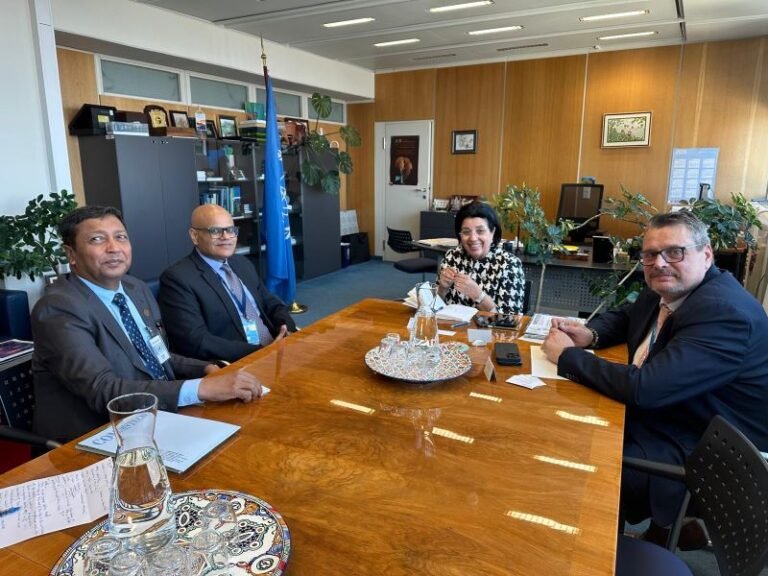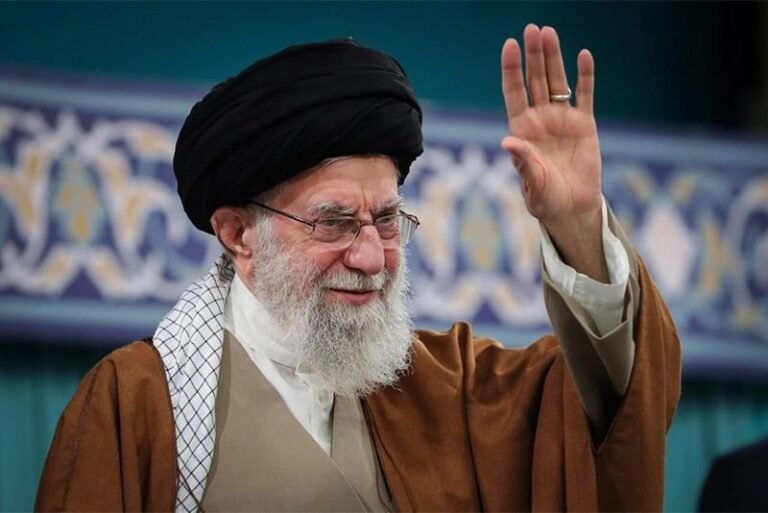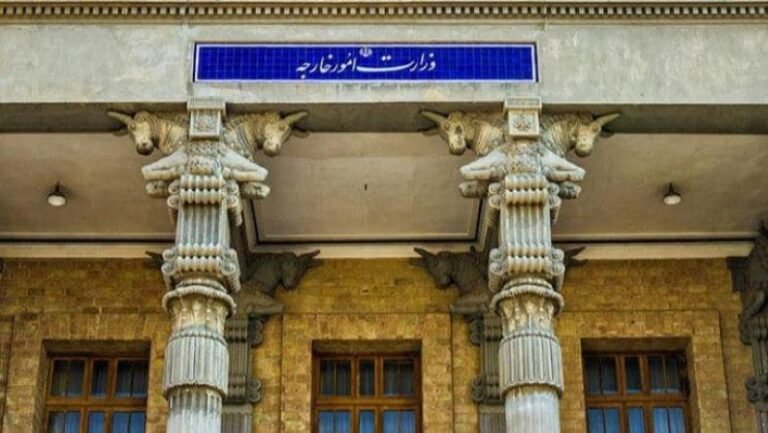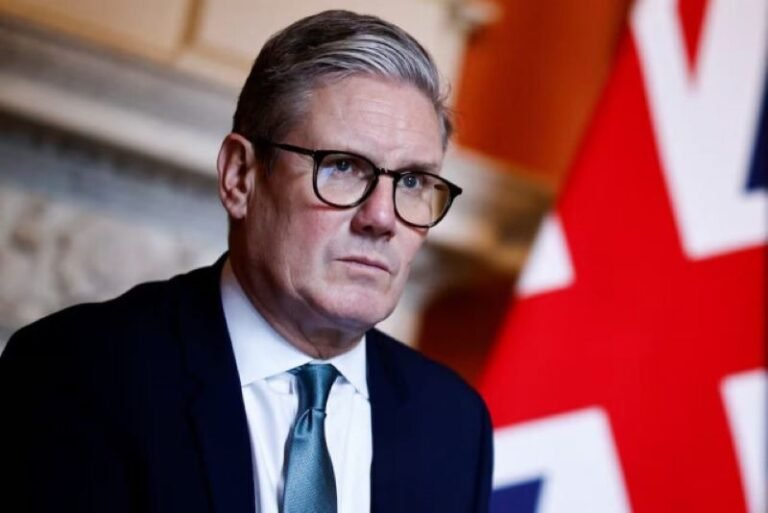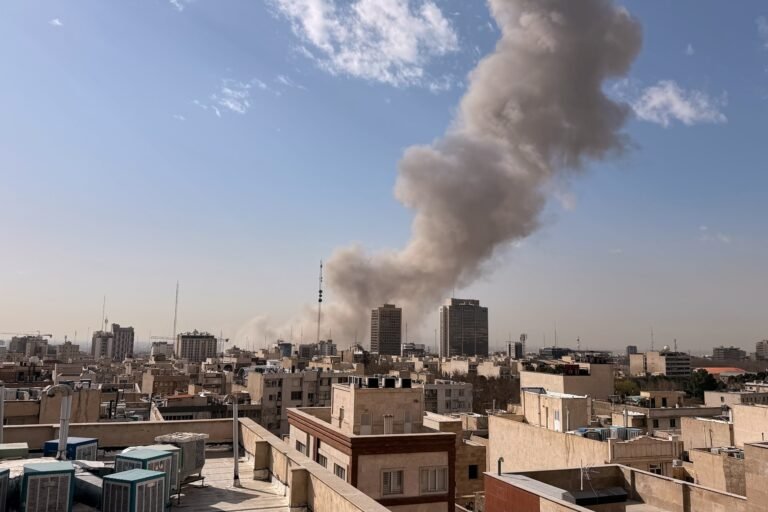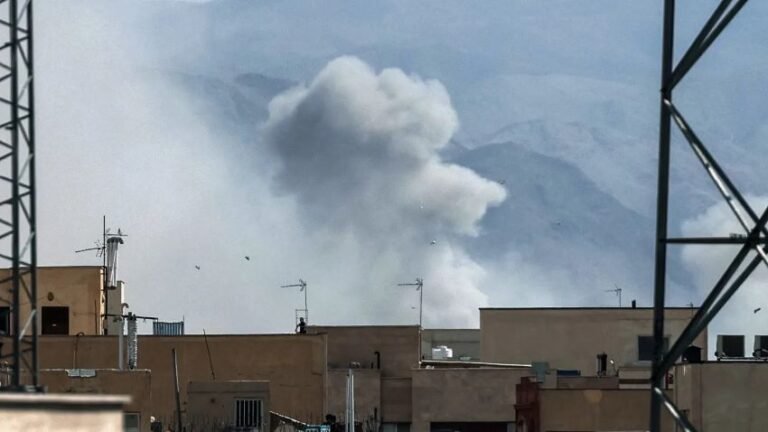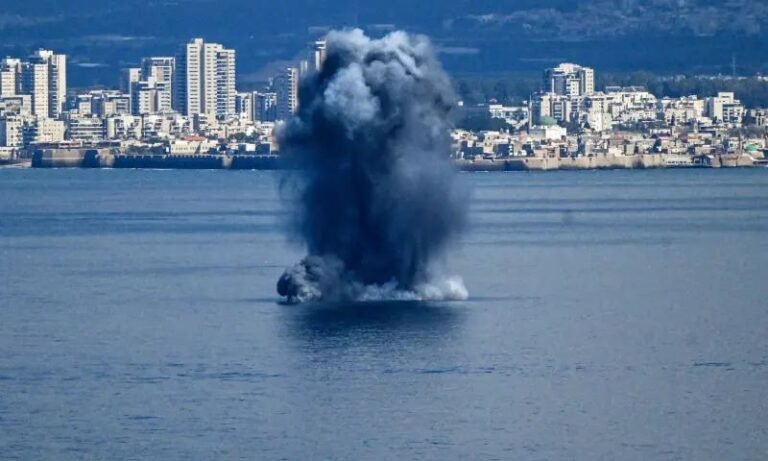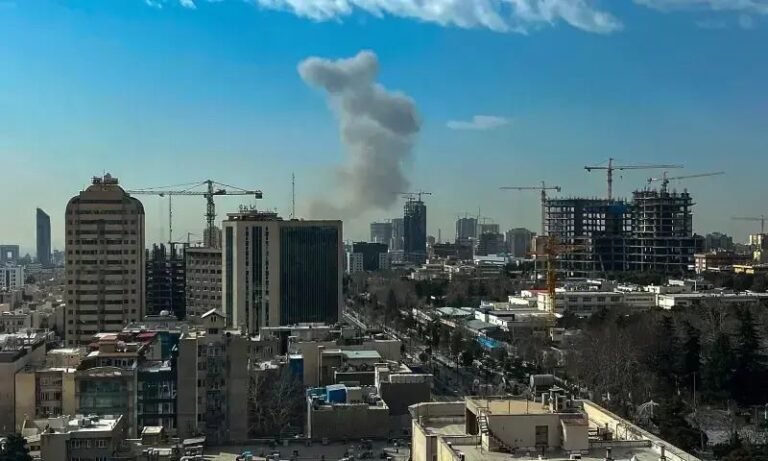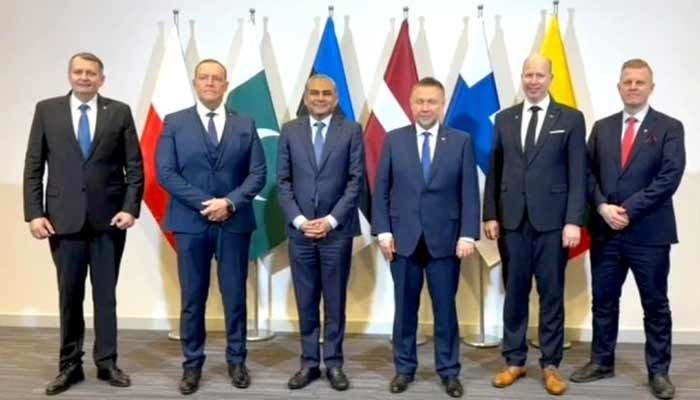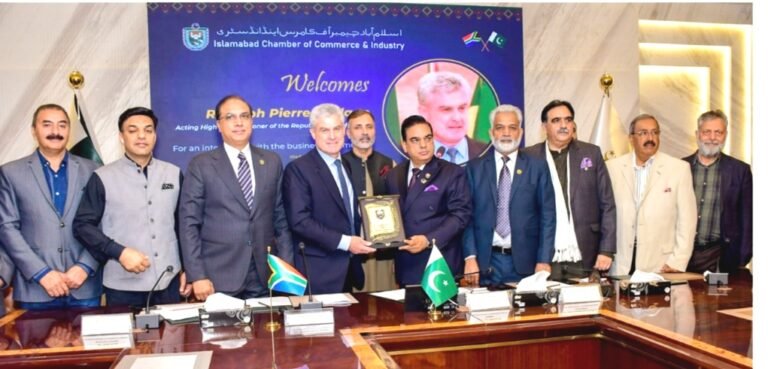Professor Saidullo Quwwatzoda
Water is a powerful resource for cooperation and dialogue to achieve sustainable development and complete stability of society. Effective, comprehensive and coordinated action is still needed, backed by strong political will. This process should involve all stakeholders, including governments, international organizations, civil society, the private sector and other active community groups. At the same time, special attention has been paid to the living conditions of the poor and vulnerable sections of the population, no one should be left out of this process, and this process should be universal, which is the main principle of the modern form of water diplomacy. These indicators are the real and integral value of modern water diplomacy, and its breadth and scope cover the entire set of water-related issues.
Considering this, the Republic of Tajikistan has a worthy place in promoting the agenda of water-related issues at the regional and global level, and is recognized as a leading country implementing world-level goals in the way of solving water problems. The Republic of Tajikistan is always a supporter of water dialogue at all levels and actively promotes water diplomacy.
Since the end of the 20th century and the beginning of the 21st century, the Republic of Tajikistan has been making scientifically based proposals to solve the problems of the water sector at the global level, and continues to do so at a high level. In this process, the Republic of Tajikistan has been recognized as the initiator of a series of global initiatives in the field of water, and its capital, Dushanbe, has become the center of water dialogue and diplomacy. Taking into account the regular, uninterrupted and effective organization of water-related activities in Dushanbe city, it is recognized by the international community as the “Dushanbe Water Process”, which includes humanitarian ideas and is aimed at the benefit of the world community as a whole.
The Dushanbe Water Process, as an international institution leading dialogue and modern water diplomacy, has played a real role in strengthening the political, institutional, legal, scientific and educational foundations of water-related issues on the world agenda, and has created a systematic process of promoting global initiatives in the field of water, the topics of clean water and access to it, water for life, cooperation in the field of water, reduction of natural disasters related to water, water-climate, water security and water for sustainable development with the attention and participation of the international community.
The Dushanbe Water Process is a set of regularly held high-level international events of Tajikistan within the framework of cooperation with the United Nations, other international and regional institutions and all countries of the world in the field of promoting the World Water Agenda and water policy in the international arena, as well as a platform for regional and international integration in the water sector.
The first initiative of Tajikistan on the issue of water was made on October 1, 1999 at the 54th session of the United Nations General Assembly, on the basis of which, on September 20, 2000, at the 55th session of the United Nations General Assembly, 2003 was declared the “International Year of Clean Water”. At this time, Tajikistan was looking for a complete end to the internal conflict, and regardless of the severe situation of the imposed civil war and its comprehensive negative effects, as well as the still unstable political and security situation, it presented a concrete concept of its foreign policy in the field of water and laid the foundation for it.
As part of the declaration of 2003 as the “International Year of Clean Water”, the International Clean Water Forum was held in Dushanbe on August 29 – September 1, 2003, with the participation of almost 500 delegates from 53 countries and about 100 international organizations. Within the scope of this event, Tajikistan showed that it is not only capable of solving its internal problems, but is also ready to make a valuable contribution to solving the most complex global problems.
Within the framework of the work of the forum, President Emomali Rahmon participated and gave a speech.
Consumption of dirty water and diseases related to it, we, the people of Central Asia, for whom this problem is especially complicated, cannot choose a neutral position.
Therefore, one of the most important issues that Tajikistan has set before itself, is to attract the attention of the countries of the world and influential international organizations to the problem of providing clean water and environmental protection, the issue of the urgent need to protect water resources. This is the main reason for declaring 2003 as the International Year of Clean Water, initiated by Tajikistan.
Also Read: Tajik President Emomali’s Key Water Initiatives
At the same time, the President Emomali Rahmon, in a speech related to regional water issues in Central Asia, expressed that if the Central Asian states do not solve the issues related to the quality, quantity and use of water resources, it will be difficult to ensure the sustainable development of agricultural production in the region. Therefore, protecting the quality of water resources and their economical and rational use should be among the most important tasks of all Central and South Asian states.
Also, regarding the rational use of water resources and beneficial cooperation in this direction, Emomali Rahmon expressed that, in our opinion, the solution to this issue should be implemented in such a way that the problems related to the lack of water for our peoples become not a means of division, but a unifying factor. The responsibility for this, first of all, rests with the leaders of the countries of the region, politicians, specialists and experts, people of science and culture, who should seek and find a way to systematize this problem, taking into account the interests of all historically neighboring peoples. The experience of the previous year’s shows that in order to ensure the balance of water distribution in Central Asia, we must implement a joint and coordinated action, create a rational and compassionate relationship with nature.
It was within the framework of this forum that the issue of clean water and access to it by the international community was evaluated at the international level. Considering that only more than 1 percent of the available water resources in the world are suitable for consumption and it is unevenly distributed on the surface of the planet, a certain part of the population does not have access to clean drinking water. According to the data, every year the number of people who die due to lack of access to clean drinking water is higher than the number of people who died as a result of terrorist acts and all other criminal acts and conflicts. However, the international community annually spends billions of dollars to fight terrorism and other criminal acts, but no serious action is taken to provide the population with clean drinking water.
This forum was one of the first international level events that identified and specified the obligations of the international community to ensure more access to clean drinking water for the population. It was in the context of this event that the issue of water became a new strategic goal of the international community, and the way to achieve water security on the planet was defined.
At the conclusion of this forum, Tajikistan proposed to declare the International Decade of Clean Water from 2005 to 2010. Based on this proposal, the General Assembly of the United Nations, with its resolution 58/217 of December 23, 2003, declared the years 2005-2015 as the International Decade of Action “Water for Life”.
As a result of this initiative, the Government of Tajikistan, in cooperation with the relevant organizations of the United Nations, held the International Conference on Regional Cooperation in Transboundary River Basins from May 30 to June 1, 2005 in the city of Dushanbe.
The conference was a link between the Third World Water Forum in 2003 in Kyoto and the Fourth World Water Forum in 2006 in Mexico City.
The main goals of the conference are the development of dialogue and strengthening of cooperation between countries on the management of transboundary river basins, development of water partnership and mutual support, exchange of experience in the field of water resource management, formation and implementation of practical measures in transboundary river basins during the International Decade of Action “Water for Life” organized.
President Emomali Rahmon participated and spoke at the conference and emphasized that the International Decade of Action “Water for Life” is an effective institutional infrastructure to ensure the real progress of the implementation of the water agenda adopted by the international community.
In his speech, he touched on the problems of water use in Central Asia and stated that if the problems of the quality and quantity of water resources are not solved in the Central Asian region, the agricultural sector cannot work smoothly and effectively. The problems of ensuring the quality of fresh water and water supply in all countries of Central and South Asia are considered a priority. Stakeholders’ dialogue should be based on the concept of integrated management of water resources and include discussions on the development of specific policies and measures in the economic, social, technical and environmental fields. We — governments, United Nations agencies, regional organizations, civil society and other stakeholders — must work together to develop solutions that are acceptable to all of us.
Also Read: Tajikistan, Russia Eye Joint Oil Projects
The importance and position of transboundary rivers in regional integration and the development of water diplomacy was determined within the framework of the conference. Until now, most experts and researchers considered transboundary rivers as a source of conflicts and disagreements between countries with common water basins. However, the results of this conference showed the world that transboundary rivers are a natural means of unbreakable connection between countries and connect states and governments regardless of their political will. This situation creates the need for cooperation, not the basis for conflict. Therefore, it is necessary for the countries with transboundary rivers and a single water basin to establish mutually beneficial cooperation for the joint and harmonious use of the water resources of such rivers within the framework of good neighborliness. The conference became a basis for determining the place and position of transboundary rivers in interstate, regional and global relations.
At the same time, within the International Decade of Action “Water for Life” on June 27-29, 2008, an international conference on reducing the risk of natural disasters related to water was held in Dushanbe. In the framework of this conference, the participating parties analyzed and discussed finding effective ways to prevent and reduce the risk of natural disasters related to water. President Emomali Rahmon took part in the conference and said that water safety, including protection from water-related natural disasters, fully contributes to the solution of the most serious environmental, economic and social problems.
In any conditions, it is absolutely impossible to achieve sustainable development without establishing a specific attitude to the problems of protection against dangerous geodynamic events related to water and their effective solution. The analysis of the process of solving the water problems of the Central Asian countries shows that the region needs the development of a relevant and comprehensive document, the so-called doctrine of water use, which includes comprehensive principles of water policy, taking into account the reduction of the risk of natural disasters related to water, the interests of all users and its consumers in the context of population growth, global climate change, the need to strengthen environmental protection and generally reduce poverty and ensure sustainable development.
As it is known, natural disasters related to water are among the most complex uncontrollable problems, and finding ways to reduce them and reduce the negative consequences of such events is considered one of the primary tasks of the international community. No country in the world can be safe from natural disasters, especially natural disasters related to water. Prevention and reduction of the negative consequences of such situations requires extensive and immediate cooperation of all states and regional and international organizations. Although there are organizations and aid organizations in this area at the regional and global level, but taking into account the increasing number of natural disasters related to water every year, it is necessary to take additional measures and consolidate international opportunities in this area in order to urgently prevent, reduce and deliver help each other in such situations.
In this sense, water, while being of primary importance for the existence of life, can also be a source of danger for the life of society if it cannot be properly managed. Therefore, the international conference on reducing the risk of natural disasters related to water in Dushanbe was able to unite the efforts of the international community in this area and convey the real importance and necessity of the issue to the world community.
From June 8 to 10, 2010, in order to assess the process of implementation of the goals of the International Decade of Action “Water for Life” in Dushanbe, a high-level international conference on the comprehensive mid-term review of the implementation of activities within the framework of the International Decade of Action “Water for Life”, 2005 -2015 was organized. This event created a favorable basis for strengthening cooperation in the water sector, and joint discussions were held between representatives of countries and participating organizations. Regarding the regional and global integration in the field of water and the strengthening of water diplomacy, the founder of peace and national unity, President Emomali Rahmon expressed in his speech that the global changes and processes of the last decades had a great impact on water sources and related to this water is becoming one of the main issues of international relations and peace. Tajikistan is a supporter of the fact that all parties should observe the spirit of cooperation, patience, transparency and mutual respect in the process of regulating water resources. Such a peaceful way will ensure sustainable development.
The rational management of water resources in the basin of transboundary rivers should take into account the fair and mutually beneficial use of not only water resources, but also other natural resources. Only such an approach can ensure sustainable development of our countries and protection of the environment for future generations. The development of water diplomacy is of great importance in this regard. In his speech, Emomali Rahmon suggested that 2012 be declared the International Year of Water Diplomacy, and it is certain that it will help strengthen cooperation and negotiations, find new ways to regulate water relations between the countries along the rivers, and improve mutual understanding between water users at all levels. will do.
Based on the proposal of Tajikistan, the United Nations adopted Resolution No. 65/154 dated 20.12.2010 “On declaring 2013 as the International Year of Cooperation in the Water Sector”.
In the framework of promoting water dialogue and the Dushanbe Water Process in 2010, the Dushanbe Declaration is adopted, which clarifies the obligations of all participating parties in the implementation of the set goals.
In 2011, the process of international integration to solve water-related issues continues in Dushanbe, the capital of Tajikistan. From October 19 to 20, 2011, the preparatory conference “Towards the UN Conference on Sustainable Development (Rio+20): Cooperation in the field of water” was held.
Also Read: Tajikistan Boosts Disaster Preparedness Efforts
About 140 water specialists and representatives of governments and international organizations participated in this conference. The main focus was on three issues: Strengthening cooperation and dialogue to achieve the Millennium Development Goals; Presentation of best practices from around the world in the light of cooperation at the local, national and regional levels to increase access to drinking water and sanitation and increase the efficiency of water use for development and environmental protection; The recommendations and guidance document adopted at the end of the conference were presented in the program of the Rio+20 Conference held from June 20 to 22, 2012 in Rio de Janeiro. Within the framework of the 6th World Water Forum in Marseille, a high-level meeting was held to highlight this program, within the framework of which the year “International Year of Cooperation in the Water Sector” will be officially announced.
As part of the goals of the “International Year of Cooperation in the Water Sector” and their practical implementation, on August 20-21, 2013, a high-level international conference on cooperation in the water sector was held in Dushanbe. In this conference, it was emphasized that the main goals of the International Year of Cooperation in the field of water are to strengthen dialogue and mutual understanding, develop and expand cooperation and partnership based on multi-level and integrated relations to solve water issues.
The set of activities implemented within the framework of the International Year of Cooperation in the field of water contributed to the comprehensive development of water diplomacy and created favorable conditions in this direction. For the first time in the world, it was in the city of Dushanbe that water diplomacy was studied and evaluated as a new direction of diplomatic and international relations, and it was discussed at the highest political level. In this context, the essence, content, necessity and inevitability of water diplomacy in modern conditions was recognized by the international community. At the same time, the understanding of the essence and necessity of modern water diplomacy was evaluated from its traditional understanding, and modern water diplomacy was recognized as a necessary condition for peaceful life on the planet.
The Republic of Tajikistan actively implements water diplomacy and has set itself the goal of playing an active role in solving water-related problems on the world stage. Within the framework of this diplomacy and in the light of the constructive initiatives in the field of water, which have been highly appreciated by the international community, the implementation of new initiatives within the framework of regional and international organizations, first of all the United Nations, is foreseen. The purpose of this initiative is to reflect the need and constructive cooperation in solving water problems for the benefit of life protection and sustainable development of humanity. From this point of view, one of the priority directions of the foreign policy of the Republic of Tajikistan is to ensure the country’s constructive role in water issues in the region and the international arena, which meets both the national interests and the aspirations of the international community.
In 2015, the Dushanbe Water Process continued as part of the summation of activities related to the International Decade of Action “Water for Life” on June 9-11, 2015 in Dushanbe, a high-level international conference on summarizing the process of practical implementation of the International Decade of Action ” Water for Life” was held in 2005-2015.
During the work of the conference, President of the Republic of Tajikistan, Emomali Rahmon, expressed that the main goal of the announcement of the International Decade of Action “Water for Life” is to support the efforts of the international community in order to fulfill the international obligations by 2015 were water resources.
By promoting the International Decade “Water for Life”, Tajikistan was able to unite the international community in solving problems and other issues related to water and implement effective actions. By uniting the efforts of the international community, the Dushanbe Water Process as a global water policy platform played a decisive role in advancing the global water agenda.
In this context, the Dushanbe Water Process continued in 2016, and on August 9-10, 2016, a high-level international symposium on the sixth goal of sustainable development – “Ensuring everyone’s access to water and sanitation” was held in Dushanbe. At the Symposium, President Emomali Rahmon delivered a report and emphasized that this goal, along with the need to provide access to drinking water and sanitation, it includes issues of water quality, efficiency of its use, joint management of water resources, protection of the water ecosystem, as well as expansion of cooperation and cooperation in the field of water. The water-related part of the Sustainable Development Goals sets out specific tasks that ensure the integration of the 6th goal with other Sustainable Development Goals, thus making water resources management a key place in the new global development agenda.
The main content of the Sustainable Development Goals is the integration of tasks related to economic and social development without negative impact on the environment and protection of biological diversity on the planet Earth. As it is known, the economic and social development, especially the industrial development in the world has led to the decrease of biological diversity, the emergence of complex environmental problems and the instability of the environment, which has created a serious danger for the future of life on the planet.
The Republic of Tajikistan is considered one of the active implementing countries of the HRU, it has established the foundations of economic and social development of the country on the basis of the principles of the HRU, it has carried out its practical activities in the way of protecting water resources and providing access to it for all, as well as good sanitary conditions.
In his report, Emomali Rahmon on regional integration in the field of water in Central Asia emphasizes that the water resources in the region are mainly formed in the territory of two countries, but its use takes place in other countries. Such a situation requires reliable cooperation in the field of management and use of water resources for the benefit of economic and social development of all countries of the region. At the same time, there are still many unused opportunities in the direction of regional cooperation for the joint, rational and fair use of water and energy resources. The full use of all these opportunities is an effective means of implementing the Sustainable Development Goals in the region. Tajikistan always supports the rational and fair use of water resources and considers water diplomacy as an effective means of achieving the Sustainable Development Goals. In this regard, Tajikistan is ready to establish mutually beneficial cooperation with all parties.
Taking into account that the path to achieving the Sustainable Development Goals is winding, the Republic of Tajikistan continues its actions and initiatives within the framework of the Dushanbe Water Process to achieve these goals. In this context, on the initiative of Tajikistan, on December 21, 2016, the General Assembly of the United Nations adopted Resolution 71/222 on the declaration of the International Decade of Action “Water for Sustainable Development”, 2018-2028.
In order to ensure the practical implementation of the goals of this Decade within the framework of the Dushanbe Water Process, on June 20-21, 2018, a high-level international conference on the International Decade of Action “Water for Sustainable Development”, 2018-2028, was held in Dushanbe. At this conference, the founder of national peace and unity, the leader of the nation, the President of the Republic of Tajikistan, Honorable Emomali Rahmon, made a speech and emphasized that the world’s demand for water resources is growing at a high rate, and this, in turn, leads to the tension of relations between the fields becomes the economy.
Intensified competition for access to water resources in the face of increasing water scarcity can have negative consequences even within a single country. These two factors – global climate change and demographic growth – will determine the framework and opportunities for our actions.
In this conference, Emomali Rahmon also touched on the strengthening of cooperation in the direction of joint use of transboundary water resources and considers it one of the main conditions for achieving the Sustainable Development Goals. It was emphasized that cross-border cooperation in the field of water is one of the most important issues, and effective and mutually beneficial integration and cooperation in the field of water is the main basis for the joint development of countries with common water basins. A clear example of constructive cooperation in the field of water is Central Asia, in this region, regardless of the uneven distribution of water resources between countries, mutually beneficial joint activities in the field of water have been established.
Regarding the regional policy of Tajikistan in the field of water, Emomali Rahmon expressed that the solution of pressing economic and social issues in the region is the main goal of the state policy of Tajikistan in the field of water. Tajikistan is always ready to use its large drinking water resources for public benefit.
In order to further implement the goals of this Decade, on January 30, 2020, the second meeting of the International Consultative Committee of the Dushanbe Water Process was held at the headquarters of the World Food and Agriculture Organization (FAO) in Rome, Italy. The meeting was held by the Government of the Republic of Tajikistan in cooperation with the World Bank and the World Food and Agriculture Organization to discuss the issues of preparation for the Second High-Level International Conference on the International Decade of Action “Water for Sustainable Development”, 2018-2028. According to the decision of this meeting, on June 18-20, 2020, the second high-level international conference on the International Decade of Action “Water for Sustainable Development”, 2018-2028, was to be held in Dushanbe, as part of the Dushanbe Water Process. However, due to the spread of the widespread infectious disease COVID-19, this conference was held in 2022.
In order to continue the Dushanbe Water Process, the 5th meeting of the International Consultative Committee of the Dushanbe Water Process was held on December 17, 2021 to facilitate the implementation of the International Decade of Action “Water for Sustainable Development”, 2018-2028.
At this meeting, the relevant decisions of the interested parties on the joint organization of thematic, interactive panels, forums, conferences, as well as further measures for the preparation and holding of the Second International Conference of the Water Decade in Dushanbe were adopted. In this regard, the Government of Tajikistan, in cooperation with the United Nations and other partners, on June 6-9, 2022, will hold the second high-level international conference within the framework of the International Decade of Action “Water for Sustainable Development”, 2018-2028, under the title “Strengthening actions and expanding “partnership to solve water issues at the local, national, regional and global levels”.
This conference is the main link in the chain of various international events in the process of preparation for the United Nations Conference on the mid-term review of the implementation of the International Decade of Action “Water for Sustainable Development”, 2018-2028 in 2023, co-chaired by Tajikistan and the Netherlands. was held and the necessary decisions were made. In this international event, effective ways and means of multilateral cooperation between countries, the United Nations and its constituent agencies, regional and global organizations, financial institutions, the private sector, civil society, scientific and educational institutions, local communities and other related parties in the process of implementing related tasks and goals water resources were presented to the participants and its main objectives were presented.
Consideration of the connection between water resources and the process of climate change, protection and development of water resources as the main basis for adapting to climate change and reducing its negative consequences had a special place in this conference. According to the program, this conference was held in the framework of two general sessions, twelve thematic and interactive panels, special forums, an exhibition, a water festival, a marathon and other water-related events, in which more than two thousand participants, including representatives of governments , heads of sub-organizations of the United Nations, general managers of regional and international organizations, international financial institutions, representatives of civil society, industry experts, scientific research institutes and other related parties participated. The conference panels were held in three groups, the main themes of which were water for health and people, water for livelihoods and inclusive development, water, environment and climate sustainability. The panels focused on tools for achieving the Sustainable Development Goals, the goals of the International Decade of Action “Water for Sustainable Development”, 2018-2028, and other water-related goals.
Forums held before the conference included women, youth, children and teenagers, other main segments of society and involving different areas in order to create a wide area of dialogue on water-related issues among interested parties
At the same time, before this conference, the third meeting of the Leaders of the Water and Climate Alliance was held, where various problems related to water and the negative impact of the climate change process on water resources were analyzed and considered by the participants. According to the analysis, the climate change has a faster pace and more complicated consequences than the experts’ forecasts, and according to official statistics, it can aggravate the water problem in the world in the coming decades. At this meeting, President Emomali Rahmon emphasized that “an integrated system of solving water and climate issues is also very important for Tajikistan, because water resources play a key role in the sustainable development of our country.” But at the same time, these vital resources are under the severe influence of climate change. We have repeatedly spoken from the high platforms of world conferences about the rapid melting of glaciers and the unpleasant consequences of this process. According to the Intergovernmental Panel on Climate Change Report on the Oceans and Cryosphere, a third of the world’s glaciers may disappear by the end of this century. In Tajikistan, only in the last few decades, more than a thousand glaciers have disappeared, and the total volume of glaciers in the country has decreased by about a third. It is clear that the continuation of this process, taking into account the rapid increase in the demand for water due to the increase in the population and economic development, will lead to unpleasant consequences. One of the clear examples of these statements is the water supply situation in Central Asian countries. If in the sixties of the last century, the water supply per capita in the region was more than eight thousand cubic meters per year, today this indicator has decreased by more than four times. Another factor related to this process is the rapid growth of the population of the countries of the region. Now this number is only two thousand cubic meters per year. Naturally, this pressing issue should be in the center of special attention of the international community”
Considering this situation, new proposals and initiatives of the Tajik side at this conference were to declare 2025 as the “International Year of Glacier Protection”, to determine the specific date of the “World Day of Glacier Protection” and to establish the “International Foundation for Glacier Protection”, which, first of all, for attracting more attention of the international community to the issue of protecting and preventing the rapid decline of glaciers, which are the main source of fresh drinking water and the basis of life for Central Asia and other similar regions.
At the opening of the conference, President Emomali Rahmon took part and gave a speech and emphasized that the integrated management of water resources, including the integration of water with issues of energy, food security, environmental protection, is one of the main tools in elimination of water-related problems is considered.
The main advantage of this event, compared to similar events held in other countries, is that its participants directly visited the resources of glaciers, the condition of transboundary rivers, hydropower facilities and got to know the problems of water resources in Tajikistan. By promoting such a method of work, Tajikistan was able to show the reality of the water problem to the participants of this conference not only theoretically, but also in practice, and draw their attention to integration and finding effective tools for solving water problems.
At this conference, the Tajik side expressed its concern that the process of actual implementation of the set goals and objectives in the direction of providing access to drinking water and sanitation is not at the required level. According to a World Bank report, the annual demand for universal access to safe drinking water and sanitation alone is about $114 billion. Unfortunately, developing and underdeveloped countries do not have such financial opportunities. In this regard, without the help of developed countries, financial institutions and the private sector will face many problems in ensuring development goals. The expansion of public-private partnership is one of the main ways in this context, which creates new opportunities for attracting additional capital to the water sector and its infrastructure.
Based on the proposals of Tajikistan at this conference, the General Assembly of the United Nations declared 2025 the “International Year of Glacier Protection” on December 14, 2022, March 21 as “World Glacier Day” and established the “International Foundation for Glacier Protection” with Resolution A/77 /443 confirmed.
The goal of the new initiative of Tajikistan is to find effective ways and means of protecting glaciers as the main source of water resources, especially clean drinking water.
As it is known, glaciers are the most vulnerable in the process of climate change, and their decline has disastrous consequences for the world community. Taking into account the geographical location, glaciers can be divided into two groups: glaciers stored in water (Northern Frozen Ocean) and glaciers stored on land (mainly located in high mountains).
In the process of climate change, glaciers stored on land, which are the main source of drinking and agricultural water resources around the world, are shrinking and most of them are disappearing, and this situation creates a global water crisis and makes it difficult to ensure water security.
Considering this situation, in the framework of the next international initiative of the Tajik side within the framework of the Dushanbe Water Process, in 2025, a high-level international conference on glacier protection issues will be held in Dushanbe. It is expected that at this conference, the goals and obligations of the interested parties in the direction of glacier protection will be specified.
In total, 9 conferences, 1 forum and 1 high-level international symposium were held within the framework of the Dushanbe Water Process from 2003 to 2022, which brought together leaders and representatives of all countries of the world and international and regional organizations and civil society. In the framework of all international events of the Dushanbe Water Process, the Secretary-General of the United Nations Kofi Annan, Ban Ki-moon, Antonio Guterres directly participated.
The Dushanbe water process has been able to play a decisive role in promoting the global water agenda and bringing together the efforts of the international community to solve water-related problems in the international arena. In this context, Tajikistan is recognized as a pioneer country in the direction of promoting global water policy, and its four international initiatives in the field of water have been accepted and recognized by the international community.
An integral part of the goals of the Dushanbe Water Process is to support sustainable development and integrated management of water resources, promote cooperation and partnership in support of achieving internationally agreed goals and objectives in the field of water resources, including the goals and objectives of the Sustainable Development Agenda until 2030. it seems
In this regard, the Government of Tajikistan is committed to continue its efforts to create a basis for dialogue on policy, partnership and action in the field of water resources at the global, regional and national levels within the framework of the implementation of the Decade, with the support of the United Nations and other partners to hold high-level conferences. In view of this, every 2 years, high-level international conferences are held in the city of Dushanbe to evaluate the process of implementation of the set goals.
Biennial conferences within the framework of the Dushanbe Water Process provide a timely and valuable opportunity to create a favorable environment and platform to support action, expand partnerships, engage in policy dialogue, review the implementation of the Decade, and develop linkages with other relevant processes.
Thus, the Dushanbe Water Process has become an international platform for water-related issues and has gained a special place in the promotion of water diplomacy and integration in the water sector.
The Dushanbe water process has created favorable conditions for studying and discussing water-related issues in the political-scientific framework, the series of events held within it, united all national, regional and global institutions leading and implementing water policy together and provided a broad basis for studying related issues. created water at the highest political level.
From the analysis, it can be concluded that within the framework of the Dushanbe Water Process, the institute of water diplomacy was created, and the foundations of its formation in modern conditions were strengthened.
Today, Tajikistan has a rich experience in promoting the World Water Agenda, and with favorable natural conditions, including huge water resources, it is a favorable place for regional and global integration in the field of water. On the basis of the series of events held within the framework of the Dushanbe Water Process, Tajikistan has the opportunity not only theoretically, but also in practice to confront the world community with global water problems, including the impact of the climate change process on water resources – the reduction of the water flow of transboundary rivers, the rapid melting of glaciers, the need to familiarize closely with the construction of hydropower plants and the protection of water resources. Such an action can familiarize the participants of the Dushanbe Water Process with the reality of water problems and persuade the highest political circles to accept and implement relevant decisions. In particular, such action can lead to increased financing of the water sector, which is one of the main ways to solve the world’s water problems.
It is necessary to use the obtained results to recognize the Dushanbe Water Process as a permanent institution of the international level and a platform of international integration for the promotion of the World Water Agenda, and its scope ranges from the holding of international events to the promotion of scientific and innovative projects in the field of water and to expand world-class joint scientific research in the field of water.
Tajikistan has very favorable conditions, in the interval every two years between the international conferences held within the framework of the Dushanbe Water Process, with the involvement of international experts, all water-related problems – hydroecological problems, the reduction of water resources, the rapid melting of glaciers, the impact of climate change on water resources, natural disasters related to water will be subject to scientific study and its results will be presented to participants at conferences. It is necessary that this process be financed by global and regional financial institutions.
Professor Saidullo Quwwatzoda is the Head of the Science Sector in the Department of the Executive Apparatus of the President of the Republic of Tajikistan.
Established in December 2008, The Diplomatic Insight is Pakistan’s premier diplomacy and foreign affairs magazine, available in both digital and print formats.



